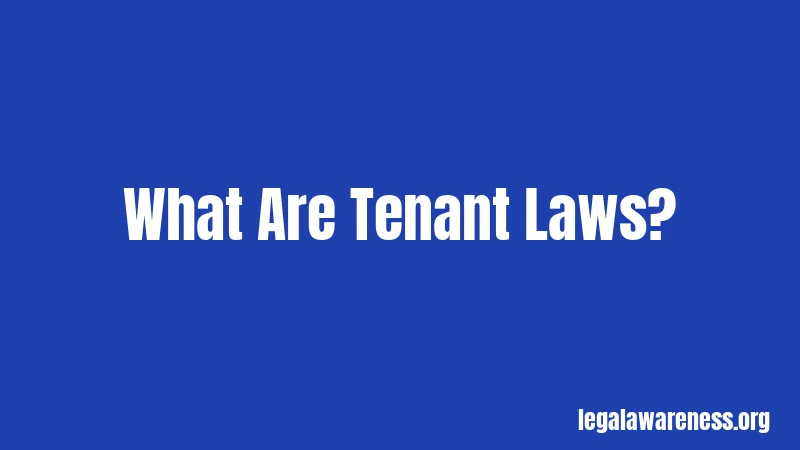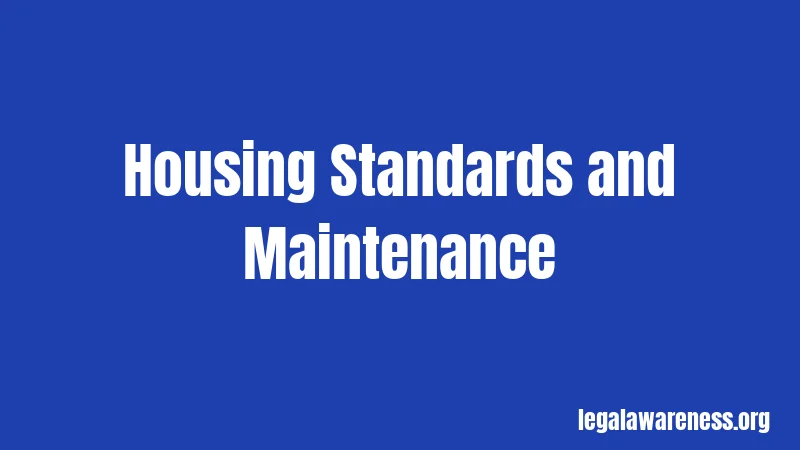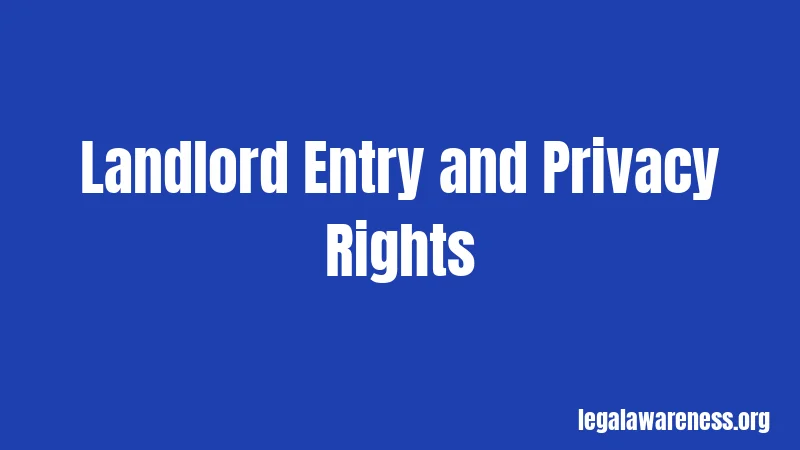Maryland Tenant Laws in 2026: Your Rights and Responsibilities
You’re renting an apartment or house in Maryland? Good. But here’s something most renters don’t realize: you have serious legal rights. Your landlord can’t just do whatever they want. And honestly, knowing these rules could save you a lot of stress and money.
Maryland has some of the strongest tenant protections in the country. This article breaks down exactly what you need to know. No legal jargon. Just real information that actually matters.
What Are Tenant Laws?

Tenant laws are rules that protect people who rent. They cover things like how much rent costs, when a landlord can enter your apartment, and what repairs need to happen. Think of it like a safety net. These laws say what renters can do and what landlords must do.
Maryland’s laws apply to almost all rentals. Single-family homes, apartments, townhouses. Landlords and tenants both have responsibilities. This article focuses on what YOU need to know as a tenant.
Basic Rent and Payment Laws
How Much Can Your Landlord Charge?
Here’s the thing about rent. Maryland doesn’t have a rent control limit. That means landlords can technically charge whatever they want. But wait, it gets more nuanced.
When you sign a lease, the rent amount is locked in. Your landlord can’t raise rent during your lease period. When it’s time to renew, they can increase it. But they need to give you proper notice. Usually, that’s 30 days before the lease ends for month-to-month situations.
Not all increases are okay though. Landlords can’t raise rent as retaliation. Say you report a broken pipe to a housing inspector. Your landlord can’t jack up your rent just to punish you. That’s illegal.
Security Deposits and the Rules Around Them
Security deposits are money you give upfront. The landlord holds it to cover damages. But there are strict rules about this.
Your landlord must keep your security deposit in a separate account. They can’t mix it with their personal money. Most important? They need to return it within 30 to 45 days after you move out. Seriously, this timeline matters legally.
When they return it, your landlord has to explain any deductions. They need to give you an itemized list. Broken window? $200. Dirty carpet? $150. Whatever they took, they have to explain it. No surprise charges.
Here’s what landlords CAN deduct: actual damage beyond normal wear and tear. They cannot deduct normal wear and tear, period. Scuffed paint from hanging pictures? Not allowed to deduct that. Broken appliance you caused? Fair game.
If your landlord doesn’t follow these rules, they could owe you money. Not just your deposit back, but extra money as punishment. We’re talking double the deposit amount sometimes.
Housing Standards and Maintenance

The Habitability Rule
Okay, this one’s important. Listen up.
Your apartment must be “habitable.” That’s a legal term, but it basically means livable. The place needs working heat, electricity, running water, and a roof that doesn’t leak. Your bathroom and kitchen need to work properly. There can’t be dangerous mold, pests, or hazardous conditions.
If something major breaks, your landlord has to fix it. Not in a month. Not in a week. Usually within a reasonable time, which often means days. A burst pipe? That’s urgent. A leaky faucet? Still needs fixing, just not as emergency-level urgent.
What if your landlord ignores the problem? You have options. You can withhold rent (but follow the legal process), you can repair it yourself and deduct the cost, or you can break your lease and move. Each option has specific rules though. Don’t just stop paying rent without knowing the process. That could backfire legally.
Minor Repairs and Maintenance
Minor repairs are your responsibility sometimes. A clogged drain caused by your hair? That’s on you. A broken light switch you damaged? You pay for it. But broken systems? That’s your landlord’s job.
The heat isn’t working in winter? Landlord’s problem. The air conditioning died? Same thing. These are required services that keep the place habitable.
Most leases say you need to keep things “reasonably clean.” That makes sense. You can’t trash the place and expect the landlord to pay for it. But they can’t charge you for normal living.
Eviction Laws and Your Protections
When Can a Landlord Evict You?
Here’s where things get serious. Your landlord can’t just kick you out because they feel like it. They need a legal reason.
Valid reasons include: you didn’t pay rent, you broke the lease terms significantly, you’re causing damage, or the lease legitimately ended. Non-payment is the most common one. But even then, the landlord has to follow strict legal steps.
Illegal reasons for eviction include: retaliation (we mentioned this before), discrimination, and exercising your legal rights. You reported a housing violation? Landlord can’t evict you for that. You complained about broken heat? Protected. You refused an illegal request from your landlord? Protected.
The Eviction Process
Landlords can’t just change the locks and throw your stuff out. That’s illegal. They need to go to court.
First, they serve you with a notice. In Maryland, this is usually a 30-day “Notice to Quit” for non-payment or breach of lease. Then they file papers in court. You get notified of the court date. You can show up and defend yourself. It’s your chance to explain why you shouldn’t be evicted.
If the judge rules against you, you get time to move. The whole process takes weeks, not days. Knowing this helps you understand your timeline.
Landlord Entry and Privacy Rights

When Can Your Landlord Enter Your Apartment?
You have a right to quiet enjoyment of your rental. That means your landlord can’t just barge in whenever they want.
Your landlord can enter for legitimate reasons. They need to make repairs, show the place to new renters, or handle emergencies. But they need to give you notice first. In Maryland, that’s usually 24 hours notice for regular reasons. Emergencies are different. A fire or gas leak? They can enter immediately without notice.
They can’t enter at weird times just to spy on you. They can’t enter on weekends at 6 AM to check if you’re breaking the lease. There has to be a legitimate, documented reason.
Wondering what counts as emergency entry? Fire, flooding, gas smell, break-ins, or similar serious situations. Your landlord needs to document these emergencies afterward.
Discrimination and Fair Housing
Protected Categories
Maryland and federal law protect you from discrimination. You can’t be turned away or treated worse because of race, color, religion, national origin, sex, disability, or family status.
This applies to everything. Renting the apartment, the rent amount they charge you, lease terms, and eviction decisions. A landlord can’t say, “We don’t rent to families with children.” That’s illegal. They can’t charge different rent based on your background.
What if you have a disability? Your landlord must allow reasonable accommodations. Need a service dog? Your landlord can’t ban it just because their lease says no pets. Need a ramp for wheelchair access? They need to work with you on it.
What Happens If You’re Discriminated Against
If you believe discrimination happened, you can file a complaint. The Maryland Commission on Civil Rights handles these. You can also file with HUD, the federal housing agency.
These agencies investigate. If they find discrimination, they can make the landlord pay damages. They can force the landlord to change their practices. Don’t ignore discrimination. These agencies exist to help you.
Special Situations and Recent Changes
Habitability Complaints and Inspections
Maryland allows you to request an inspection from housing authorities if major problems exist. If you report issues and they’re verified, your landlord must fix them.
The cool part? After an inspection confirms problems, your rent is considered overpaid. You might get credit or a reduction until it’s fixed. This is called “rent abatement” and it’s powerful protection.
Lease Terms You Should Know About
Some landlord requests are illegal, even if written in your lease. A clause that says you can’t report housing violations? Void. Unenforceable. A clause that charges “admin fees” for normal lease terms? Courts have struck these down.
You can’t sign away your legal rights. Ever. If your lease includes something shady, the legal requirement usually wins over the lease language.
How to Handle Problems with Your Landlord
Step One: Document Everything
Keep records. Dates, times, photos of problems, texts, emails. If your landlord promises to fix something, follow up in writing. “Per our conversation on Tuesday about the broken window, can you confirm when this will be fixed?”
This creates a paper trail. It protects you legally if things escalate.
Step Two: Give Written Notice
Don’t just complain verbally. Send a formal written notice to your landlord. Email works. Regular mail works too. Keep a copy.
Describe the problem clearly. Mention how long it’s been broken. Ask for a reasonable fix timeline. “The kitchen faucet has been leaking for three weeks. Please repair this within five business days.”
Step Three: Know Your Resources
If your landlord doesn’t respond, you have options. Contact local housing authorities. Reach out to tenant rights organizations. Many offer free advice.
Maryland has several tenant advocacy groups that help renters understand their rights. Don’t suffer quietly. Help exists.
Frequently Asked Questions
Can my landlord charge me for normal wear and tear?
No. Normal wear and tear is the landlord’s responsibility. Scuffed walls from pictures, faded carpet from sunlight, small carpet stains from normal living? Not your problem. Major damage you caused? That’s different.
What if my landlord won’t return my security deposit?
Document everything and follow up in writing. Give them the legally required timeframe (usually 30-45 days). If they don’t return it, you can sue in small claims court. You might recover double the deposit amount.
Can my landlord raise my rent whenever they want?
Not during your lease. The amount is locked in. At lease renewal, they can increase it, but they need to give proper notice. Increases can’t be retaliatory or discriminatory.
What should I do if my landlord enters without permission?
Keep records of when it happened and any damage. Try to determine if there was a legitimate reason. If it seems illegal, contact a tenant rights organization or lawyer. Repeated unauthorized entry could be grounds to break your lease.
Can my landlord evict me for calling a housing inspector?
Absolutely not. That’s illegal retaliation. If your landlord evicts you within a certain timeframe after you reported violations, it’s presumed retaliatory and you have a strong legal defense.
Final Thoughts
You’re a tenant in Maryland? You’re protected. More protected than you probably realize. Your landlord can’t just do whatever they want. You have real rights here.
The key is knowing what those rights are. Now you do. Keep this information handy. Document problems. Communicate in writing. And if things get serious, don’t hesitate to reach out to local housing authorities or tenant advocacy groups.
Stay informed, stand up for yourself, and remember: your home is your space. You deserve to live safely and fairly.
References
- Maryland Office of the Attorney General – Rental Housing
- Maryland Commission on Civil Rights – Housing Discrimination
- Baltimore Rent Control Board – Tenant Rights
- Community Law Center – Maryland Tenant Rights Resources
- Maryland Tenants Union – Advocacy and Education
- HUD Fair Housing Rights
- Maryland Residential Tenancies Act – State Law
